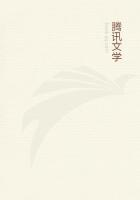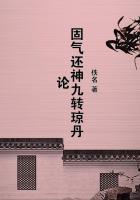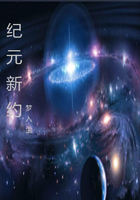So the great Confucius taught us that if we do always the same things with our hands and our feet as do the wise beasts and birds, with our heads we may think many things: yes, my Lord, and doubt many things.
So long as men offer rice at the right season, and kindle lanterns at the right hour, it matters little whether there be gods or no.
For these things are not to appease gods, but to appease men.'
"He came yet closer to me, so that he seemed enormous; yet his look was very gentle.
"`Break your temple,' he said, `and your gods will be freed.'
"And I, smiling at his simplicity, answered: `And so, if there be no gods, I shall have nothing but a broken temple.'
"And at this, that giant from whom the light of reason was withheld threw out his mighty arms and asked me to forgive him.
And when I asked him for what he should be forgiven he answered:
`For being right.'
"`Your idols and emperors are so old and wise and satisfying,' he cried, `it is a shame that they should be wrong.
We are so vulgar and violent, we have done you so many iniquities-- it is a shame we should be right after all.'
"And I, still enduring his harmlessness, asked him why he thought that he and his people were right.
"And he answered: `We are right because we are bound where men should be bound, and free where men should be free.
We are right because we doubt and destroy laws and customs-- but we do not doubt our own right to destroy them. For you live by customs, but we live by creeds. Behold me! In my country I am called Smip. My country is abandoned, my name is defiled, because I pursue around the world what really belongs to me.
You are steadfast as the trees because you do not believe.
I am as fickle as the tempest because I do believe.
I do believe in my own house, which I shall find again.
And at the last remaineth the green lantern and the red post.'
"I said to him: `At the last remaineth only wisdom.'
"But even as I said the word he uttered a horrible shout, and rushing forward disappeared among the trees.
I have not seen this man again nor any other man.
The virtues of the wise are of fine brass.
"Wong-Hi."
"The next letter I have to read," proceeded Arthur Inglewood, "will probably make clear the nature of our client's curious but innocent experiment.
It is dated from a mountain village in California, and runs as follows:--
"Sir,--A person answering to the rather extraordinary description required certainly went, some time ago, over the high pass of the Sierras on which I live and of which I am probably the sole stationary inhabitant.
I keep a rudimentary tavern, rather ruder than a hut, on the very top of this specially steep and threatening pass.
My name is Louis Hara, and the very name may puzzle you about my nationality. Well, it puzzles me a great deal.
When one has been for fifteen years without society it is hard to have patriotism; and where there is not even a hamlet it is difficult to invent a nation. My father was an Irishman of the fiercest and most free-shooting of the old Californian kind.
My mother was a Spaniard, proud of descent from the old Spanish families round San Francisco, yet accused for all that of some admixture of Red Indian blood. I was well educated and fond of music and books. But, like many other hybrids, I was too good or too bad for the world; and after attempting many things I was glad enough to get a sufficient though a lonely living in this little cabaret in the mountains.
In my solitude I fell into many of the ways of a savage.
Like an Eskimo, I was shapeless in winter; like a Red Indian, I wore in hot summers nothing but a pair of leather trousers, with a great straw hat as big as a parasol to defend me from the sun.
I had a bowie knife at my belt and a long gun under my arm; and I dare say I produced a pretty wild impression on the few peaceable travellers that could climb up to my place.
But I promise you I never looked as mad as that man did.
Compared with him I was Fifth Avenue.
"I dare say that living under the very top of the Sierras has an odd effect on the mind; one tends to think of those lonely rocks not as peaks coming to a point, but rather as pillars holding up heaven itself.
Straight cliffs sail up and away beyond the hope of the eagles; cliffs so tall that they seem to attract the stars and collect them as sea-crags collect a mere glitter of phosphorous. These terraces and towers of rock do not, like smaller crests, seem to be the end of the world.
Rather they seem to be its awful beginning: its huge foundations.
We could almost fancy the mountain branching out above us like a tree of stone, and carrying all those cosmic lights like a candelabrum.
For just as the peaks failed us, soaring impossibly far, so the stars crowded us (as it seemed), coming impossibly near.
The spheres burst about us more like thunderbolts hurled at the earth than planets circling placidly about it.
"All this may have driven me mad: I am not sure. I know there is one angle of the road down the pass where the rock leans out a little, and on window nights I seem to hear it clashing overhead with other rocks-- yes, city against city and citadel against citadel, far up into the night.
It was on such an evening that the strange man struggled up the pass.
Broadly speaking, only strange men did struggle up the pass.
But I had never seen one like this one before.
"He carried (I cannot conceive why) a long, dilapidated garden rake, all bearded and bedraggled with grasses, so that it looked like the ensign of some old barbarian tribe.
His hair, which was as long and rank as the grass, hung down below his huge shoulders; and such clothes as clung about him were rags and tongues of red and yellow, so that he had the air of being dressed like an Indian in feathers or autumn leaves.
The rake or pitchfork, or whatever it was, he used sometimes as an alpenstock, sometimes (I was told) as a weapon.
I do not know why he should have used it as a weapon, for he had, and afterwards showed me, an excellent six-shooter in his pocket.
`But THAT,' he said, `I use only for peaceful purposes.'
I have no notion what he meant.

